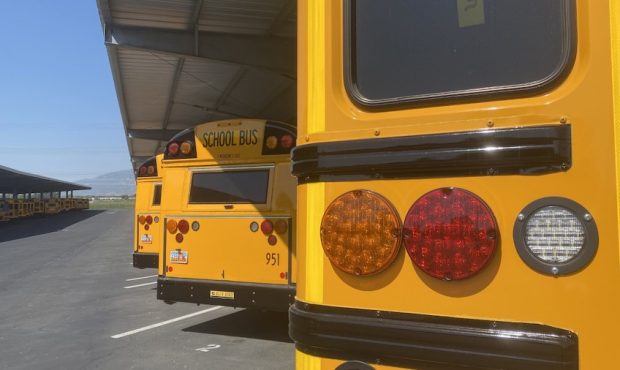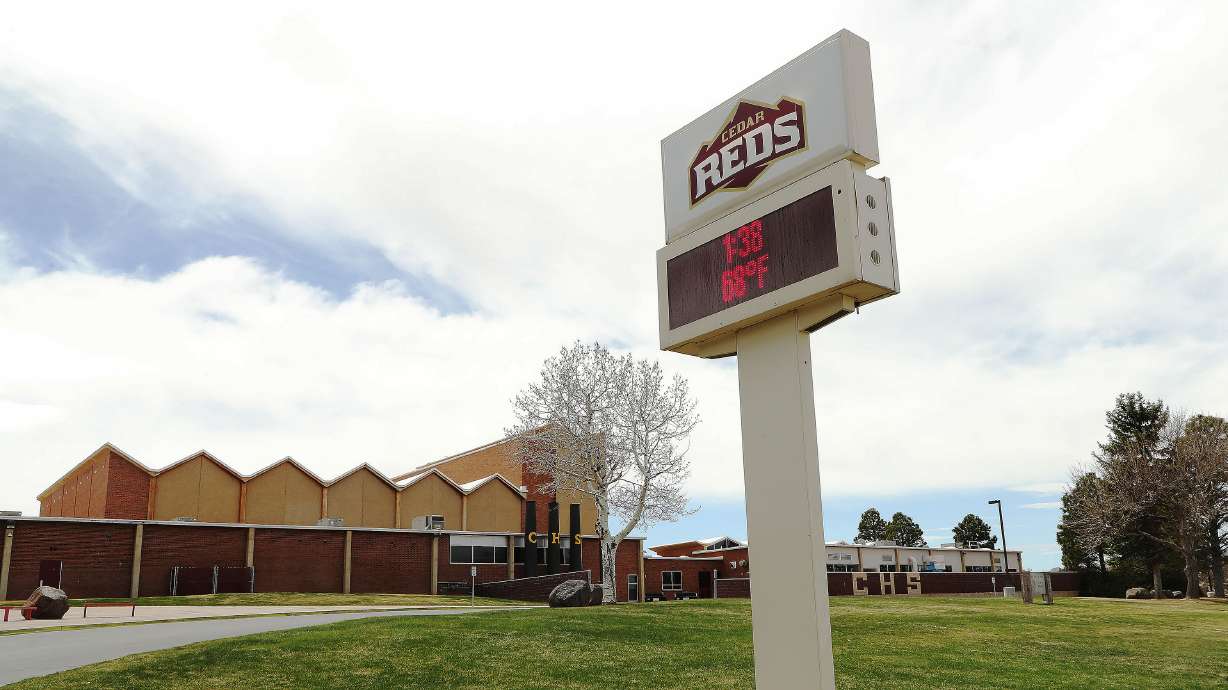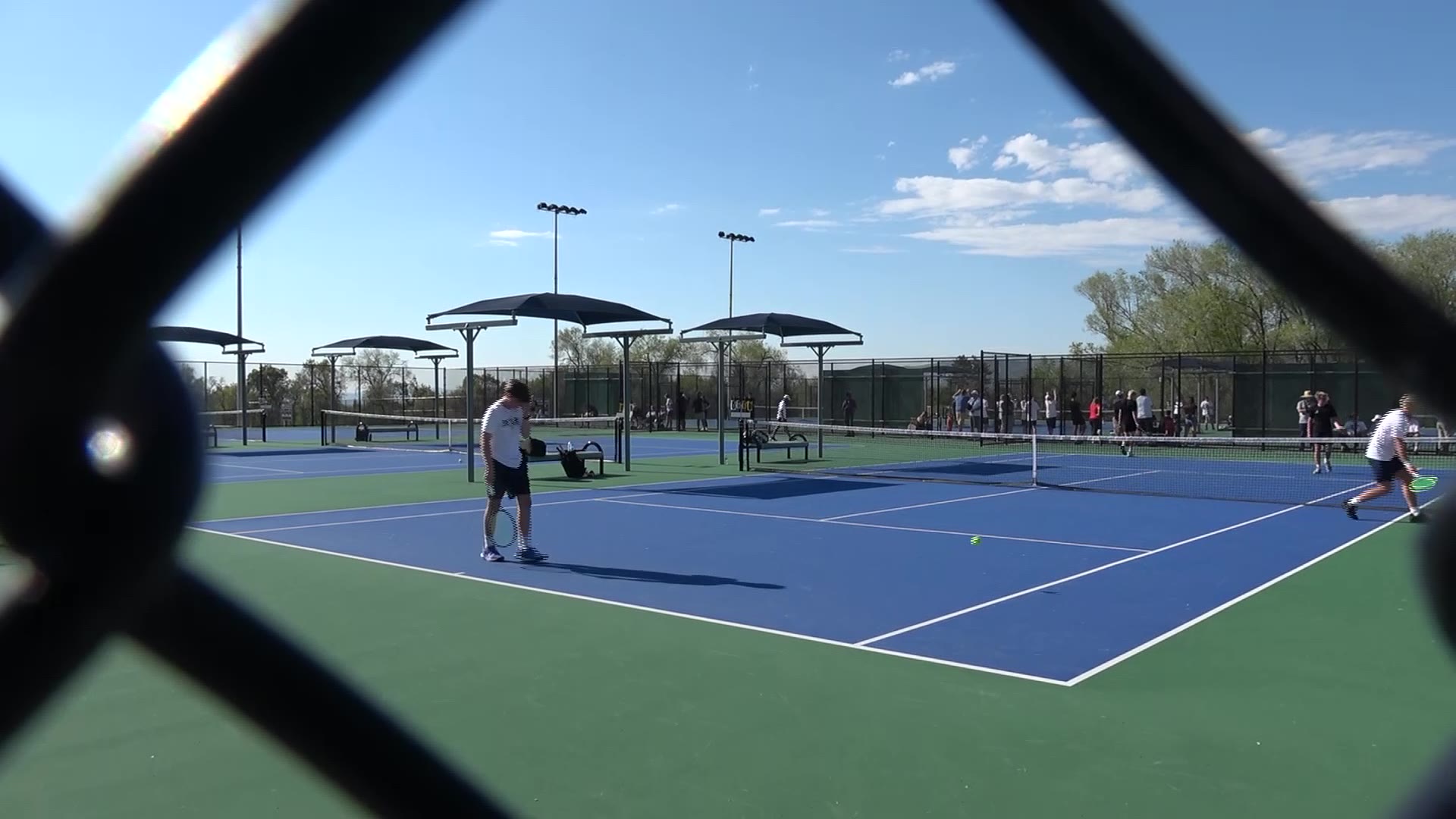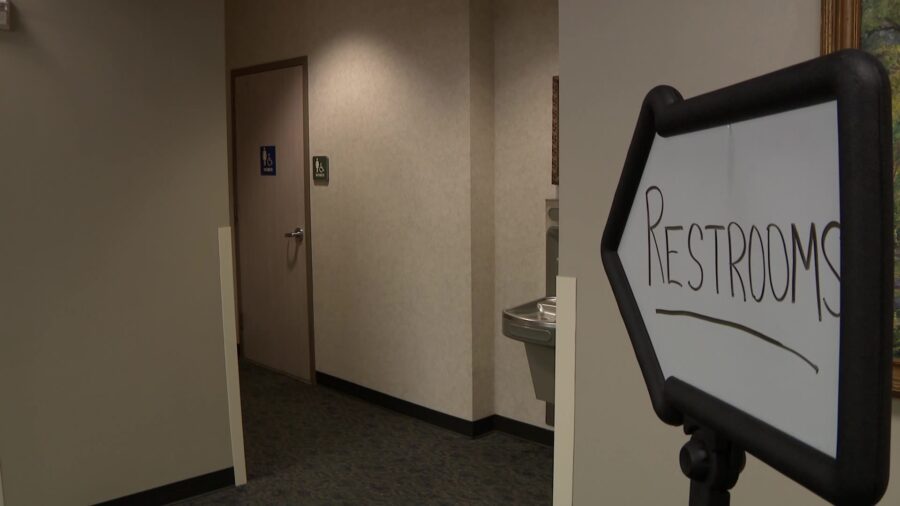Schools debate: Gifted and talented, or racist and elitist?
Oct 28, 2021, 3:32 PM | Updated: 3:57 pm

FILE PHOTO -- . (Ashton Goodell/KSL TV)
(Ashton Goodell/KSL TV)
NEW YORK (AP) — Communities across the United States are reconsidering their approach to gifted and talented programs in schools as vocal parents blame such elite programs for worsening racial segregation and inequities in the country’s education system.
A plan announced by New York City’s mayor to phase out elementary school gifted and talented programs in the country’s largest school district — if it proceeds — would be among the most significant developments yet in a push that extends from Boston to Seattle and that has stoked passions and pain over race, inequality and access to a decent education.
From the start, gifted and talented school programs drew worries they would produce an educational caste system in U.S. public schools. Many of the exclusive programs trace their origins to efforts to stanch “white flight” from public schools, particularly in diversifying urban areas, by providing high-caliber educational programs that could compete with private or parochial schools.
Advanced and accelerated courses in middle school and high school are great.
Gifted and talented programs for 4- and 5-year-olds are a form of educational snake oil sold to overachiever parents.
If a preschooler already knows calculus, there’s little they’ll gain from G&T.
— The Headless Strxwmxn 🎃 (@strxwmxn) October 24, 2021
Increasingly, parents and school boards are grappling with difficult questions over equity, as they discuss how to accommodate the educational aspirations of advanced learners while nurturing other students so they can equally thrive. It’s a quandary that is driving the debate over whether to expand gifted and talented programs or abolish them altogether.
The year is 2035
“If you or a loved one participated in a gifted and talented development program you may be entitled to financial compensation for the damages done to your self concept.”— 🌞 sunseeker (@solo_cwhite) October 28, 2021
“I get the burn-it-down and tear-it-down mentality, but what do we replace it with?” asked Marcia Gentry, a professor of education and the director of the Gifted Education Research and Resource Institute at Purdue University.
Gentry coauthored a study two years ago that used federal data to catalogue the stark racial disparities in gifted and talented programs.
It noted that U.S. schools identified 3.3 million students as gifted and talented but that an additional 3.6 million should have been similarly designated. The additional students missing from those rolls, her study said, were disproportionately Black, Latino and Indigenous students.
Nationwide, 8.1% of white and 12.7% of Asian American children in public schools are considered gifted, compared with 4.5% of Hispanic and 3.5% of Black students, according to an Associated Press analysis of the most recent federal data.
Gifted and talented programs aim to provide outlets for students who feel intellectually constrained by the instruction offered to their peers. Critics of the push to eliminate them say it punishes high achievers and cuts off a prized opportunity for advancement, particularly for low-income families without access to private enrichment programs.
Why do liberal elites think black kids don’t take gifted and talented programs? G&T are lifelines in inner city, largely black communities. Why isn’t @AP looking for those stories? They are literally everywhere. https://t.co/CkRiHZYZ1A
— Kira (@RealKiraDavis) October 28, 2021
In Seattle, a schools superintendent who left her job in May sought to do away with the district’s Highly Capable Cohort program, as the district’s gifted and talented program is called, blaming it for causing de facto segregation. In its own recent analysis, Seattle public schools found only 0.9% of Black children had been identified as gifted, compared with 12.6% of its white students.
The school board has approved changes that will do away with eligibility testing and make all grade schoolers automatically eligible for consideration for advanced instruction. In addition to grades, the selection committee will consider testimonials from teachers, family and community members.
As well as leading our Gifted and Talented Rugby Programme, our very own Rugby Union star Kelly Smith is taking part in GB sevens camps throughout November, to compete for HSBC Sevens World Series in Dubai. #BeMoreBlaise #GoodLuck pic.twitter.com/VRvdC9qegr
— Blaise High School (@BlaiseHighSch) October 22, 2021
The changes don’t go far enough for critics like Rita Green, the education chair of the Seattle Chapter of the NAACP. She has called for more work to build environments that nurture the intellectual development of all the district’s 50,000 schoolchildren.
“We want the program just abolished. Period. The Highly Capable Cohort program is fundamentally flawed, and it’s inherently racist,” Green said.
Debates over the criteria for admission to advanced courses and elite schools predate the latest national discussion about racial inequities, but have intensified since the killing of George Floyd.
In Boston, the school committee voted this summer to expand eligibility to its exclusive exam schools and guarantee spots to high-achieving students from poor and disadvantaged neighborhoods.
Latino students account for roughly 42% of Boston’s 53,000 public school students — about twice the number as whites — but are vastly underrepresented in advanced courses. By the district’s account, fewer than 20% of the fourth graders invited to participate in advanced work classes were Latino, while 43% of those invited were white.
My school is doing gifted and talented testing in my classroom today and it’s really bringing up my middle school trauma of not being selected for G&T because I wasn’t as good of a test taker as my friends 🙃
— lauren (@kylau_ren_) October 28, 2021
Many children are overlooked because of language and cultural barriers, said Iván Espinoza-Madrigal, the executive director of Boston’s Lawyers for Civil Rights. Subconscious bias among teachers who nominate students for the program also play a role, he said.
Elsewhere, the renowned Lowell High School in San Francisco in February scrapped admissions exams in favor of a lottery system. In Fairfax County, Virginia, parents recently lost a legal bid to undo their school district’s decision to do away with testing for admissions to a campus catering to high achievers in science and technology.
Most gifted and talented programs have relied on tests to determine eligibility, with some families spending thousands of dollars on tutoring and expensive specialized programs to boost scores and increase their children’s chances of getting a coveted spot.
So we’re going to eliminate the gifted and talented programs instead of fixing the schools so everyone can excel? I see. https://t.co/LijRPdOWTL
— Jazz Shaw (@JazzShaw) October 28, 2021
Controversy over admissions into advanced education programs has simmered in other cities, including Los Angeles and Chicago. But nowhere has the debate been as intense as in New York, where Mayor Bill de Blasio said last month that he would begin to dismantle the program in elementary schools, calling it “exclusive and exclusionary.”
Some parents, including Rose Zhu, have called on the city to expand the program, not do away with it. She joined dozens of other parents outside the city’s Department of Education building this month to protest de Blasio’s proposal, bringing along her 21-month-old daughter, who Zhu hopes will follow two older siblings into the city’s gifted and talented program.
Can we break with the “former gifted child” discourse. Gifted and talented programs were hella problematic and exclusionary. It’s not a flex.
I was in the special education wing at school and we were ostracized by the “gifted” kids.
— Kyle, but not A Kyle (@kchvasta) October 28, 2021
“I live in Queens, and our traditional schools in our districts aren’t really good,” she said. “So the G and T program is the best school I can put them in.”
Nationwide, 8.1% of white children in public schools are considered gifted, compared with 4.5% of Black studentshttps://t.co/2MYsVplxJt
— Dayton 24/7 Now (@dayton247now) October 28, 2021
De Blasio’s likely successor, fellow Democrat Eric Adams, has said he does not support eliminating the program, which would put him at odds with some of his Black constituents. Adams himself is African American.
One such constituent, Zakiyah Ansari, the New York City director for the Alliance for Quality Education, wants Adams to follow through with de Blasio’s pledge.
“We believe every child is a gifted child, every child is a talented child,” Ansari said. “We have to have people as angry about taking away one program that impacts a few people and be more upset about the Black and brown kids who haven’t had access to excellent education.”
Tbh the students that usually end up in “gifted and talented” never end up doing anything gifted or talented in their life, and the ones that do were not in those classes
— Tum (@Tumulus_) October 28, 2021
But Gentry, the director of the Gifted Education Research and Resource Institute, agreed that it was time for “a revolution to fix the problem that’s been long standing in terms of equity” in access to gifted and talented instruction.
She urged parents and school administrators to do the hard work of finding a compromise.
“I worry that the easy solution is to stop doing it,” she said. “I know the inequities exist. But the thing is, there’s a huge distinction between overhauling or eliminating.”













